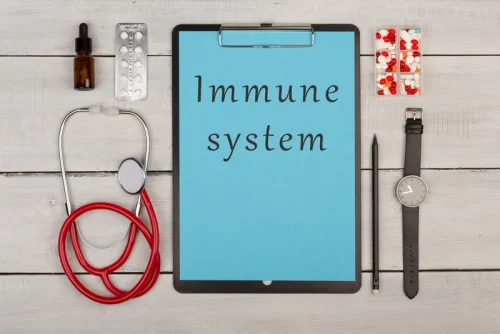The Eye-Opening Science Behind Alcoholic Rage FHE Health

The most frequent drug used was marijuana; 30% of the sample reported use of this drug at least once during the six-month baseline period. With regard to baseline levels of anger, males scored at the 75th percentile and females at the 55th percentile on the STAXI-trait anger scale. Both treatments were delivered by female, masters-level social workers in accordance with treatment manuals for each condition; both therapists delivered both treatment protocols. Therapists received treatment manuals; four days of training including role plays, demonstrations and simulations; and supervised experience in both modalities with several clients prior to beginning the study.
Why Is Medication for AUD Underutilized?
Consistent with our previous work (Walitzer et al., 2009), we hypothesized that AA Facilitation treatment would lead to greater AA involvement, and increased AA involvement would predict improved drinking outcomes among these clients. Clients receiving the AA facilitation treatment reported significantly more AA behaviors and steps worked than clients receiving alcohol-adapted anger management treatment. This differential effect was also marginally present for during-treatment AA meeting attendance and posttreatment drinking consequences. In sum, these findings underscore that AA meeting attendance, behaviors, and steps worked are important therapeutic factors in AA facilitation treatment. This also suggests possible changes in brain glucocorticoid pathways in humans that may increase risk of hazardous drinking. As stated earlier, alcohol consumption stimulates cortisol release; however, in response to either stress or alcohol exposure, the increase in cortisol is lower in people who binge drink or drink heavily than in those who drink moderately.
Potential Effects of Alcohol-Related Aggression

Majority of the dependent and abstainers attributed it to personal reasons (persisting irritation, frustration, negative attitude toward the alcohol users, decrease communication with others). 60% of the dependent and abstainers experienced it significant impact on family (decrease communication with wife, frequent fights) and workplace area (loss of job and conflict with employers). There was no significant difference in relation to age on onset of drinking, occupation, and education. A total of 100 males (50 alcohol-dependent and 50 abstainers) in the age range of 20–45 years with a primary diagnosis of alcohol dependence were taken for the study.
- It’s a very important area of the brain directly impacted by alcohol use.
- Someone who is frequently angry while drunk could have an underlying mental health condition, but it could also just be the consequence of long-term or unresolved anger.
- These factors provide the initial momentum toward an aggressive action that represents the availability of an aggressive response.
- It is important to understand the specific impact of alcohol on these conditions.
- Meditation can help clients to relax physical tension, become more self-aware, and work toward creating a healthy mind-body balance.
Serotonin in AUD and Aggression
Contrary to popular belief, anger is not the sole emotional experience while drinking. While some individuals may indeed experience heightened anger under the influence of alcohol, others may encounter a range of emotions, including happiness, sadness, or even euphoria. Males are more likely to express aggression in a physical and/or direct form, whereas females are more likely to express it in an indirect form. It has also been https://ecosoberhouse.com/ reported that both the males and females are equally aggressive when verbal aggression is at play (Archer, 2004; Björkqvist, 2017). In an experiment conducted by Giancola and Zeichner (1995), 128 participants (64 males and 64 females) performed a task where they gave an electric shock to the fictional opponents, which included both the genders. The participants were assigned to either alcohol, a placebo, or a sober group.

Potential modest treatment responses among clients with little or no exposure to treatment may have obscured positive effects for those receiving all or nearly all of the intervention. Another study that explored the impact of alcohol consumption on facial recognition found that individuals with alcohol use disorder exhibited a bias toward misidentifying emotional facial expressions as hostile or disgusted (Freeman et al., 2018). Interestingly, those in the control group tended to misidentify expressions as happy. A more recent study of 249 male and female heavy drinkers with a history of past-year intimate partner violence found that acute alcohol intoxication moderated the impact of problematic alcohol use on an attentional bias toward anger (Massa et al., 2019). Specifically, it found that problematic drinkers may be more likely to attend to aggressogenic stimuli while intoxicated, and that is, they were more likely to experience certain cues as aggressive.

Addiction Treatment Programs
Hostility, on the other hand, encompasses a more general disposition of antagonism or animosity. Anger, aggression, and hostility seem like common terms that are related to each other. It is important to understand the specific impact of alcohol on these conditions. This phenomenon highlights the complex interplay between alcohol and emotional regulation, underscoring the importance of mindfulness alcoholism and anger and self-awareness in alcohol consumption. Understanding this dynamic highlights the importance of mindfulness and caution regarding alcohol consumption, particularly for individuals prone to anger-related challenges. Alcohol’s impact on the frontal lobe, a region responsible for executive functions such as emotional regulation, decision-making, and impulse control, is profound.

Domestic Violence

- Alcohol is a depressant substance, meaning that it helps to suppress some of the “fight-or-flight” stress reactions that anger can induce.
- The link between alcohol and aggression has been established since the 1990s, and a World Health Organization (WHO) committee in the 2000s noted aggression is more closely linked to alcohol use than any other psychoactive substance.
- Consider talking with someone who has had a problem with drinking but has stopped.
- Erin is a Nurse Practitioner with 8 years of experience in midwifery and women’s health.
- This phenomenon highlights the complex interplay between alcohol and emotional regulation, underscoring the importance of mindfulness and self-awareness in alcohol consumption.
- But the brain is deeply (and immediately) impacted by heavy alcohol use as well.




